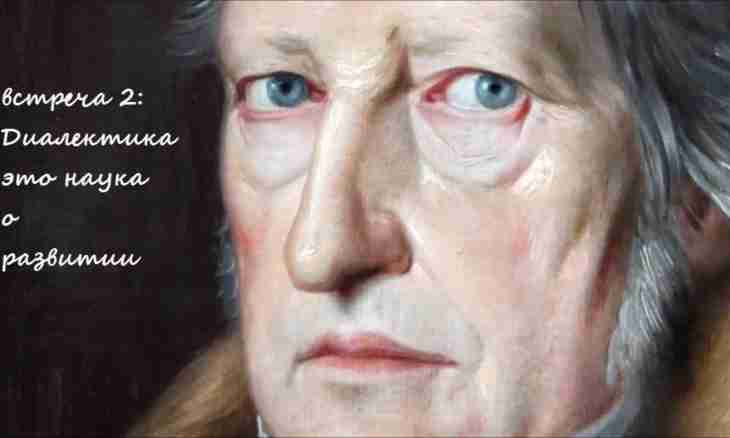The German philosopher Georg Wilhelm Friedrich Hegel – one of those thinkers whose doctrine will never be completely disproved. It can be developed, specified, but its elements will always be one of fundamentals of philosophy.
G. V.F. Hegel was born in 1770 in family of the high-ranking official, graduated from the Tuebingen theological institute. It began the activity as the house teacher, but the fatherly inheritance allowed it to refuse teaching. In different years Hegel, in parallel creating philosophical works, was the privatdozent of the Yensky university, the editor of the newspaper, the rector of a classical gymnasium, professor of philosophy in Heidelberg, and then at the Berlin university, since 1818 headed department of philosophy at the same university, and in 1831 it was appointed his rector. In November of the same year the philosopher died, presumably from cholera, epidemic of this disease stormed then in Berlin.
Absolute idea
One of cornerstones of philosophy of Hegel – a concept of the Absolute idea, World spirit. This active beginning which is cause of the world material and spiritual. Its activity – thinking, its purpose – the self-knowledge consisting of three stages.
At the first stage the Absolute idea acts as a clean thought and proves in the system of logical categories. At the second stage there is a self-alienation of the Absolute idea in the Nature which becomes external expression of logical categories. At the third stage the Absolute idea develops "in the spirit of" (thinking and history), comprehending itself in human activity and consciousness. So it is restored to itself. This process of development and self-knowledge of the Absolute idea is thought as a vicious circle. To different stages of development of the Absolute idea there correspond two philosophies - "nature philosophy" and "spirit philosophy". The spirit at Hegel appears as subjective (a scope of anthropology and psychology), objective (morals, the right, family, society and the state, history) and absolute (religion, philosophy, art). Thus, Hegel is an objective idealist.
Dialectics
One of the main merits of Hegel before world philosophy are laws of dialectics. The concept of dialectics existed also to Hegel. It was treated as art to conduct a discussion, the doctrine about variability of life, a way of destruction of illusions of reason, etc. The dialectician Hegel is a system which became a universal philosophical method "the driving soul of any scientific expansion of a thought also represents the only principle which brings immanent communication and need in the maintenance of science". Any development (even those its types which were not obvious during Hegel's era) is defined by three universal laws. The first of these laws – "denial denial": old has to be overcome (denial), but continuity in development remains therefore there is a return to old, but in new quality, "on a new round". Such phenomenon can be observed in any development. For example, at the beginning of the 20th century in the academic music there is a destruction of a melody (denial). In the last decades the melodic beginning returns to the academic music, but melodies became others, in them beauty and emotionality (denial denial) is not regarded as of paramount importance any more. The second law of dialectics is "transformation of quantitative changes in qualitative and qualitative in quantitative". For example, accumulation of changes in a genotype of organisms (quantitative change) leads to emergence of a new species (high-quality change), accumulation of mental new growths – to transition to a new age stage (the child becomes a teenager, the teenager – the young man). The third law - "unity and conflict of opposites". Examples of such "fight" can be observed in any type of development too. For example, all stories of an opera genre is "unity and fight" of the principles of through development and number structure, atom exists thanks to "unity and fight" of a positive charge of a kernel and a negative charge of electrons, nervous activity is "unity and fight" of processes of excitement and braking. Perhaps, ideal expression of dialectics of Hegel (in particular, the last law) was the fact that its philosophy, being objective and idealistic by the nature, was adopted by founders and adherents of the materialistic philosophical directions – in particular Marxists.

